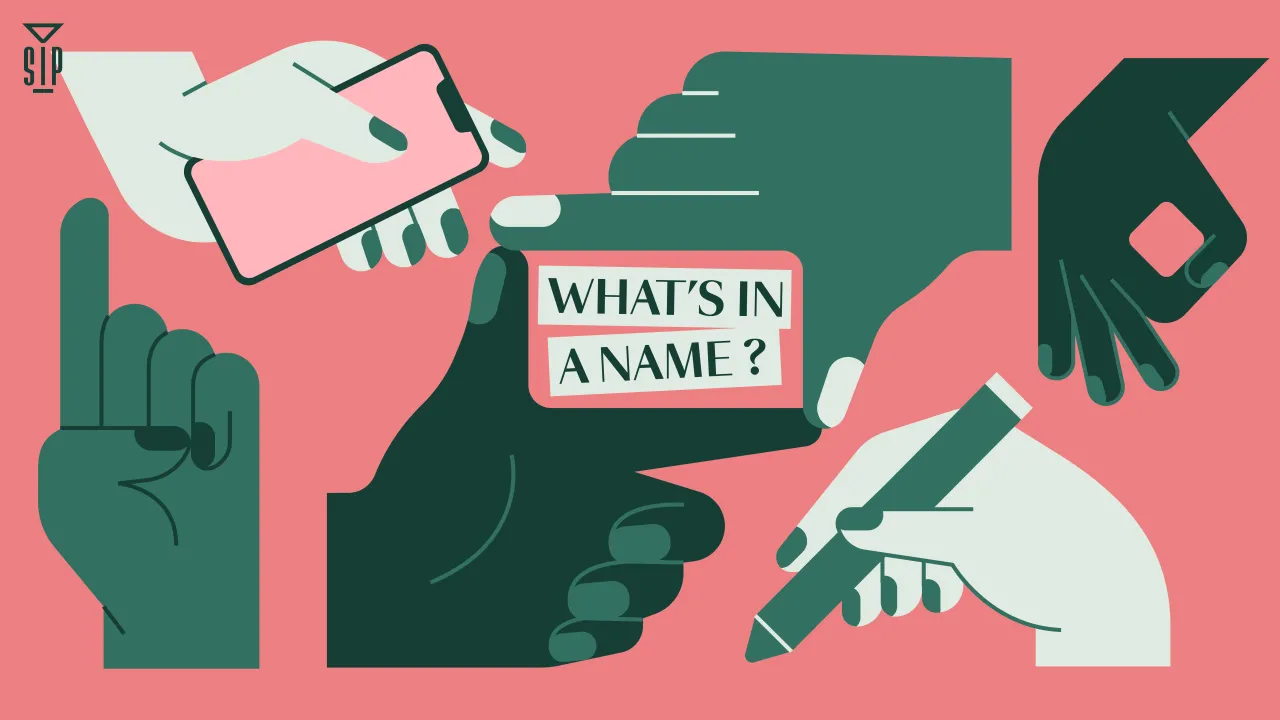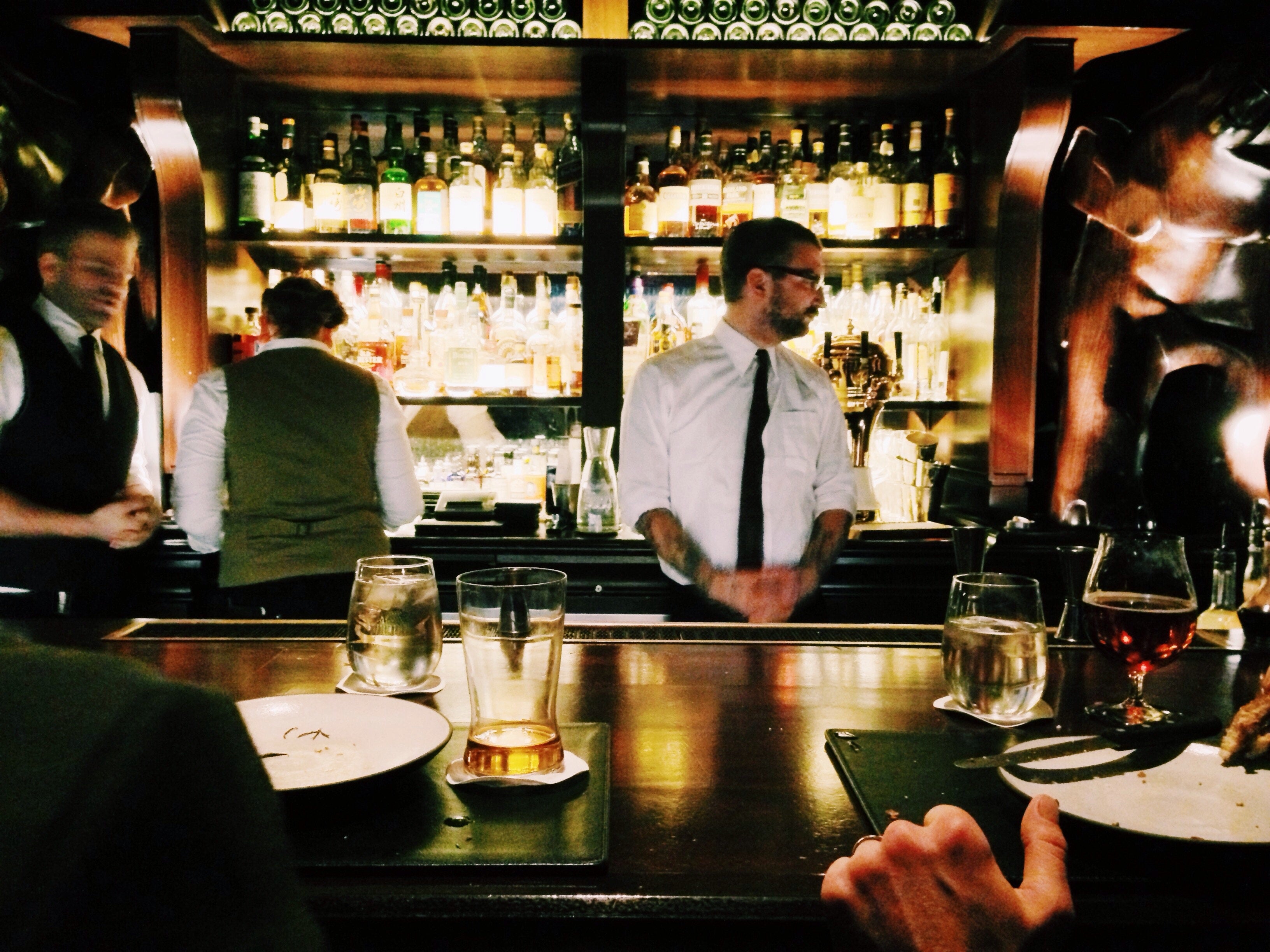Where to start – identify some themes
Matt Utber is the founder of The Plant, a branding agency in London with clients including hotels, bars and restaurants. Increasingly, his work includes naming. “I think it’s probably the hardest thing we do,” he says. His team begins by building a series of themes that might include the researching history of the owners or the site, the style of building or the food and drink on offer. “Think about representing your core values,” he suggests. “What's the tone of the place?”
He’ll often play around with common phrases or idioms. As did the founders of Three Sheets in east London, taking the name from the expression ‘three sheets to the wind’. Originally a nautical term meaning the sail ropes were loose, causing the boat to lurch, ‘three sheets’ is also the highest level on an old sailor’s scale of intoxication – so the bar’s menu is divided, from one to three sheets.
Get personal – in name or motivation
“Everyone that comes to the restaurant is looking for Angelina,” says Josh Owens-Baigler of the east London restaurant he co-founded. “Our chef and host are asked whether they're Angelina every night.” In fact, the name comes from a Louis Prima song that Owens-Baigler and his late father used sing along to in the car. Although his Angelina isn’t a pizzeria as in the song, Owens-Baigler and his partner always knew it would have an Italian leaning. “I think that deciding on the name early really helped us with framing some of some of our brand,” Owens-Baigler says. “We wanted a name that would give us the impetus to work hard.”
Likewise, in Stockholm at A Bar Called Gemma, the name belongs solely to the venue, not a person. “It's an acronym of our purpose and what we do as a business model essentially,” says co-founder Johan Evers. The letters stand for generosity, emotional, mindful, multilateral and artisan. “Then, I added ‘A Bar Called,’” Evers says, explaining that, as the site of a former café, it was important to be explicit in its current purpose. “Then we gained the hashtag #ABCGemma… and that's going to be like a stamp for our future.”
Mrs. Riot in London, is most definitely named for a person, albeit fictive. The bar has a strong female clientele, showcasing female bands and musicians, and primarily employing women bartenders and staff. As explains bar owner (and events impresario) Nick Zuppar, the name was no accident.
“Kitty Clive was a woman who lived in Covent Garden in the 1700s. She was a trailblazer. She was the first woman to get paid more than a man. She was the first-ever celebrity in London. The most famous character she ever wrote was called Mrs. Riot, hence the name of the bar. I don't know why the girls come here, but they do. Maybe Mrs. Riot has got this imaginary draw to them.”
On the night we visited, it was hard to argue with her pulling power.
When brands collide – venues within venues
It gets harder when you’re having to name, say, outlets in a hotel. Both venues have to have their own name and identity, yet sit together comfortably – complement and contrast. Multiple stakeholders can complicate the process.
Helenka Fletcher had to work through this conundrum when naming venues at the Standard in London, where she is executive director of food and beverages. “In the very early days, Isla restaurant was going to be called the Garden Restaurant,” she says. In the end, it wasn’t felt to be strong enough. “We wanted to have a brand that would attract not only hotel residents but external customers.”
The naming process was opened up to a large group, including the corporate team in New York. “Sometimes, because of the collaborative way we work, you can go round in circles,” Fletcher says. “But there's always got to be some point in the process where a decision is made and we all agree and move on.” Now, Fletcher thinks of the process a bit like naming a child: “Isla suits it and it's grown into it. I can't imagine it being called anything else.”
A short Tube ride away, Leo Robitschek was facing a similar challenge to name one of three new bars he was opening at the NoMad hotel. For inspiration the Sydell Group’s VP of food and beverage looked to the venue’s history – one of the first-ever police stations, built during the gin craze of the 1700s. The name they hit upon was ‘Common Decency’, a wink to the apparent lack thereof in historical London.
“It's pretty awesome that we were an old cop shop, and now we're at a place of fun revelry. There was a lot of really cool people that were arrested here. Oscar Wilde spent some time here. Pinochet, Casanova, Vivienne Westwood, the Kray twins, some better than others. But it's still a place that's full of history and full of a lot of fun stories,” Robitschek enthuses –and of fewer arrests too we hope!
Talk it out – inspiration is everywhere
“Sometimes the most senior creative person in the studio won’t have the best ideas,” Utber says. “It might be the receptionist, or someone’s kids – it pays to be open and non-judgmental initially.”
Decimo at the Standard in London went through workshops and brainstorms for weeks before a name was agreed on, says Fletcher. One night, executive chef Peter Sanchez-Iglesias was talking with his father, Paco, about different ways in Spanish to express “ten” (the floor on which the restaurant is located). When Paco said Decimo, the name immediately felt right for the Spanish-Mexican inspired food and lofty atmosphere.
Similarly, when Utber was looking for a name for his cycling café, he was describing the concept to a friend at the pub, who said, “call it The Dynamo”. A cycling term, “dynamo” encapsulated the energy needed for a venue where cyclists refuel.
It’s no secret where Chris Goss found the name for his record label’s newest drum-and-bass festival, which in June 2022 hosted 3,000 people over seven days on a remote stretch of the Albanian coast. Goss co-founded Hospital Records in 1996, growing the label to run regular self-styled club nights across the country called ‘Hospitality’, which then spawned into festivals across Europe. The Albanian event’s name is simple, obvious, and effective: Hospitality on the Beach.
Name check – do your research
“There is a kind of legal jeopardy that comes with naming,” Utber says, explaining the case of a venue (“not one of ours!”) that had chosen a name, the branding created and logos designed, menus printed and aprons ready to go, and then a cease and desist letter arrived. His initial diligence includes IP and companies searches. For international venues, he works with local copywriters to head off sensitivity or mistranslation and tone issues, and always recommends getting an IP lawyer involved.
Owens-Baigler checked if other venues in London were called Angelina, as well as applicable copyrights. “The last thing is, we checked how close it was to the start of the alphabet,” he says. “I would be lying if I said that we started out with that motivation, but it was an added bonus, and definitely of commercial assistance.”
The secret sauce – distilled
“A name needs to be strong,” Fletcher says. “It needs to describe what the space is, whether that's a bar or restaurant or a hotel. It needs to be relevant to the offering. It needs to be simple, and I would say something that people can easily remember. But also, a good name is a good name.” Utber agrees but isn’t convinced that a good name guarantees credibility or success: “You want people to remember your name – but they’ll judge you on what you deliver.”
Finding that perfect venue name
12 October 2022

It’s the first sense of a venue’s character and sets the first expectation. We ask owners, directors and consultants to share their secrets for finding that perfect name.
Related Shows
© World’s Best Bars 2024. All Rights Reserved.
Content to be shared with those over the legal drinking age only - Enjoy responsibly.

Check your email
If we recognize your account, a link to reset your password has been sent to your email address. If you haven’t received it, please check in your spam folder and add to whitelist.
Check your email
A link to activate your account has been sent to your email address. If you haven’t received it, please check your spam folder and add it to whitelist.







